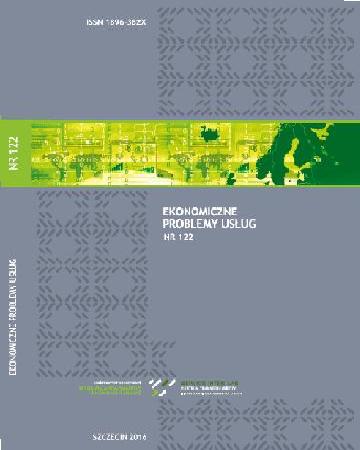
ISSN: 1896-382X
eISSN: 2353-2866
OAI
DOI: 10.18276/epu.2015.119-11



Liste der Ausgaben /
nr 119 2015
The Employment Prospects and the Development of the Scientific Community in the Context of the Modernization of the Belarusian Economy
(Perspektywy zatrudnienia w rozwoju środowiska naukowego w kontekście modernizacji białoruskiej gospodarki)
| Autoren: |
Sergey
Solodovnikow
Belarus National Technical University, Faculty of Technologies of Management and Humanitarization Olga Mazurenko Belarus National Technical University, Faculty of Technologies of Management and Humanitarization |
| Schlüsselbegriffe: | modernizacja techniczna i technologiczna post-industrializacja modernizacja gospodarek tranzytywnych |
| Data publikacji całości: | 2015 |
| Seitenanzahl: | 14 (161-174) |
Abstract
Główne zasady tworzenia stowarzyszeń społecznych i naukowych w procesie modernizacji gospodarki Białorusi zostały określone na podstawie koncepcji postindustrialnej. Są one następujące: zasada równoległości modernizacji technicznej i technologicznej gospodarki oraz tworzenia postindustrialnych stosunków pracy; zasada oszczędności pracy w oparciu o przemysł wysokich technologii; zasada strategicznej orientacji na światowe tendencje technologiczne; zasada długofalowego kształcenia ustawicznego specjalistów; zasada promocji przez państwo osiągnięć naukowych w obszarze produkcji; zasada rosnącego wpływu priorytetów moralnych i ekologicznych.
Konieczność tworzenia efektywnej gospodarki informacyjnej stanowi podstawę dla formowania stowarzyszeń społeczno-naukowych.
herunterladen
Artikeldatei
Bibliographie
| 1. | Bell D., The Coming of Post-Industrial Society: A Venture in Social Forecasting, New York, Basic Books, 1973. |
| 2. | Brzezinski Z., Between Two Ages, New York, 1970. |
| 3. | Castells M., The Information Age: Economy, Society and Culture. Vol. I: The Rise of the Network Society, London and Oxford, Blackwell Publisher, 1996. |
| 4. | Castells M., The Rise of the Network Society: 2nd ed., Wiley-Blackwell, 2010. Changing Classes: Stratification and Mobility in Post-Industrial Societies, Esping-An-dersen G. SAGE Publications, 1993. |
| 5. | Gershuny J., After Industrial Society? The Emerging Self-Service Economy, Macmillan, 1978. |
| 6. | Inozemtsev V, Beyond Economic Society, Moscow, Academia-Science, 1998. Ivanter V, Labor-Saving as a Priority, "The Economist" 2011, No. 1. |
| 7. | Izmailova M., Socio-Economic Consequences of the Post-Industrial Stage of Develop-ment of the Society, Bulletin of the Russian State Trade and Economic University, 2008, No. 6 (27). |
| 8. | Machlup F., The Production and Distribution of Knowledge in the United States, Prince¬ton University Press, 1962. |
| 9. | Myasnikovich M., About the Conceptual Directions Providing the Innovative Growth of the Republic of Belarus in the Medium Term, Economic Bulletin of the INAH of the Ministry of Economy of the Republic of Belarus, 2010, No.12. |
| 10. | Roszak T., Where the Wasteland Ends: Politics and Transcendence in Postindustrial So- |
| 11. | ciety, 1972. |
| 12. | Solodovnikov S., Socio-Class Structure of Belarus, Russia and Ukraine, Grodno, 2011. Solodovnikov S., Socio-Economic Determination Systems, Minsk, 2002. |
| 13. | Solodovnikov S., The Transformation of the Socio-Class Structure of the Belarusian Community: Methodology, Theory, Practice, Minsk, Law and Economics, 2003. |
| 14. | The Knowledge Society, Holland, 1984. |
| 15. | Toffler A., Toffler H., Creating a New Civilization. The Politics of the Third Wave, Turner Publishing, Atlanta, 1993. |
| 16. | Veredyuk O., The Determinants of Employment in the Concept of Post-Industrial Society, Bulletin of St. Petersburg State University, 2010, Ser. 5, Vol. 4. |